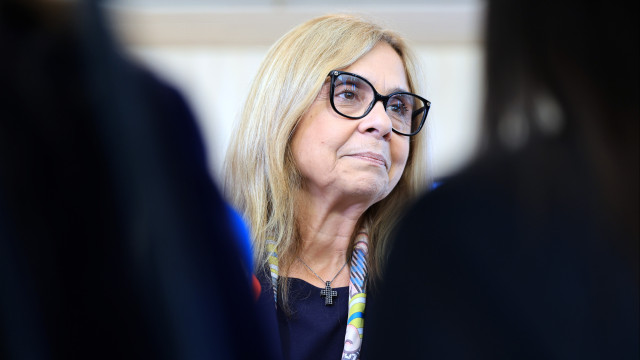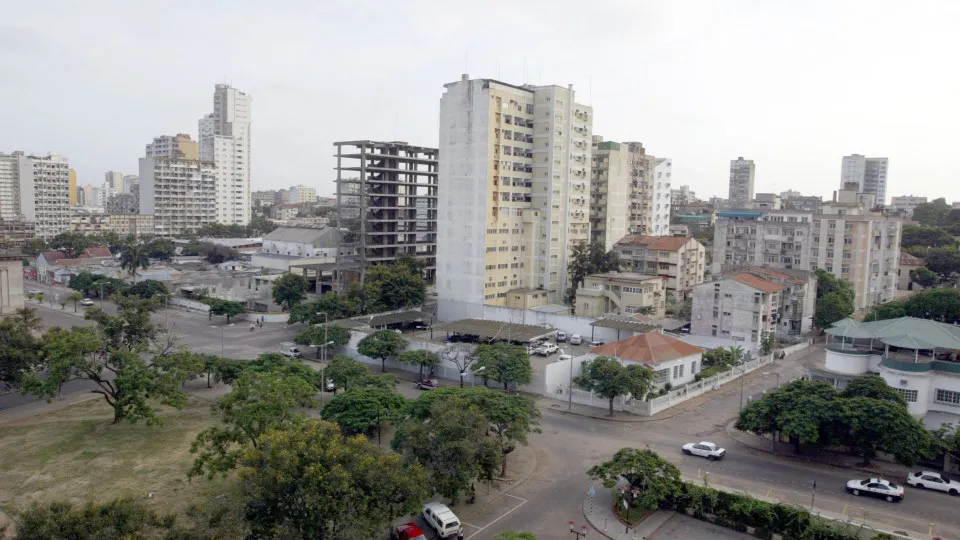The deaths of Umo Cani and her newborn daughter at the Fernando da Fonseca Hospital, commonly known as Amadora-Sintra, over the weekend continue to stir political debates. Party leaders are holding the Government and Health Minister Ana Paula Martins accountable.
The president of Chega, who had commented over the weekend, reiterated on Monday that Ana Paula Martins should assume “political responsibility” not only for this situation but for the current state of healthcare. André Ventura pointed out that the health minister tends to “accept responsibility” on behalf of others, but not personally. “There is only one person who never assumes responsibility: the health minister,” he emphasized, coinciding with Ana Paula Martins’ acceptance of the resignation from the Amadora-Sintra Hospital’s Administrative Council.
The council president, Carlos Sá, resigned after acknowledging that he provided “incomplete” information to the health minister, which was then relayed to parliamentarians and the nation. Ana Paula Martins described this as a “serious failure.”

The announcement was made by the health minister on Monday, November 3, after a 36-year-old woman, 38 weeks pregnant, died at the Amadora-Sintra Hospital one day after being seen and sent home. According to Ana Paula Martins, there was “a serious information failure” in the process.
José Luís Carneiro shifted focus from the minister to the Prime Minister, stressing the “responsibility of the Prime Minister, because he is the primary and sole accountable one.” This stance was also defended over the weekend.
The Liberal Initiative (IL) expressed a similar view, arguing that the dismissal of Ana Paula Martins is insufficient to address the underlying issues in healthcare. The sector demands “reformist proposals” which the Government has failed to implement.
“The minister needs to decide if she has the capability; if she does, great, that’s what the Portuguese need; if she doesn’t, she should make way for someone who does,” stated IL’s parliamentary leader, Mário Amorim Lopes.
The Portuguese Communist Party (PCP), akin to the Socialist Party, “holds the Government, primarily the Prime Minister, accountable” for the health state. Regarding the Amadora-Sintra board’s resignation, Deputy Alfredo Maia emphasized that “the PCP does not seek scapegoats.”
Presidential candidates have also spoken
Beyond political parties, presidential candidates are weighing in on the issue.
Henrique Gouveia e Melo argued that “the health issue is far wider than the minister’s role.” The responsibility for Ana Paula Martins’ continuation was passed to Luís Montenegro.
“Whether the health minister stays or goes [after the pregnant woman’s death on Friday at the Amadora-Sintra Hospital], it’s the Prime Minister’s responsibility, who is co-responsible, as the head of government, for how health has, or has not, met the people’s expectations.”
António José Seguro insists “it’s time to stop pretending and hiding,” as there are visible failures in the National Health Service that need rectification, alongside malfunctioning equipment.
“We’ve witnessed tragic news and completely abnormal situations in recent months, which appear to be establishing a new norm,” he criticized.
The PCP-backed candidate, António Filipe, specifically criticized “the minister’s reaction” to the pregnant woman’s death, seeing it as “particularly grave.”
“Thus, it’s a serious issue, not only the event but also the health minister’s response to it,” António Filipe argued.
Temido claims the SNS situation is “much more grave”
On Sunday night, former health minister Marta Temido also commented on the situation. Acknowledging that Ana Paula Martins’ departure wouldn’t solve the health issues, she noted that the National Health Service’s current predicament “is far more serious and disruptive than what this evaluation based on one or another case suggests.”
Recall that Temido resigned from António Costa’s government in August 2022, soon after news of another pregnant woman’s death during inter-hospital transfer emerged.




